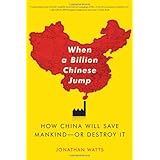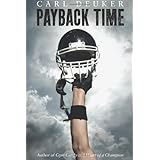
Average Reviews:

(More customer reviews)Edited 20 Dec 07 to add links.
Joe Trippi's book, The Revolution Will Not Be Televised: Democracy, the Internet, and the Overthrow of Everything joins Howard Rheingold's book, Smart Mobs: The Next Social Revolution and Bill Moyer's collaborative book, Doing Democracy as the companions for this book--taken together, the four books provide everything any group needs to "take back the power."
Whereas Trippi provides a personal story that illuminates the new power that comes from combining citizen activism with Internet-enabled networking, this book focuses more on the role the Internet and blogs play in the perception and dissemination of accurate unbiased information. It is not only an elegant presentation, easy to read, with good notes and a fine seven-page listing of cool web sites, but it also provides a useful survey of past writings on this topic--with due credit to Alvin Toffler's first perception of the trend toward mass customization and the elimination of intermediaries, together with original thoughts from the author.
This book could become a standard undergraduate reference on non-standard news sources and the blurring of the lines between producers and consumers of information (or in the government world, of intelligence).
Resistance to change by established media; the incredible emotional and intellectual growth that comes from having a "media" of, by, and for the people that is ***open*** to new facts and context and constantly being ***refreshed***, and the undeniable ability of the people in the aggregate to triumph in their assembled expertise, over niche experts spouting biases funded by specific institutions, all come across early in the book.
The book is provocative, exploring what it means when more and more information is available to the citizen, to include information embedded in foods or objects that communicates, in effect, "if you eat me I will kill you," the author's most memorable turn of phase that really makes the point.
While respecting privacy, the author notes that this may, as David Brin has suggested, be a relic of a pre-technological time. Indeed, I was reminded of the scene in Sho-Gun, where a person had to pause to defecate along the side of the trail, and everyone else simply stood around and did not pay attention--a very old form of privacy that we may be going back to.
Feedster gets some good advertising, and it bears mention that Trippi is still at the Google/email stage, while Gillmor is at the Feedster/RSS/Wiki stage.
Between Trippi and Gillmor, the term "open source politics" can now be said to be established. The line between open source software, open source intelligence or information, and open spectrum can be expected to blur further as public demands for openness and transparency are backed up with the financial power that only an aroused and engaged public can bring to bear.
Gilmor is riveting and 100% on target when he explores the meaning of all this for Homeland Security. He points out that not only is localized observation going to be the critical factor in preventing another 9-11, but that the existing budget and program for homeland security does not provide one iota of attention to the challenge of soliciting information from citizens, and ensuring that the "dots" from citizens get processed and made sense of.
The book slows in the middle with some case studies I could have done without, and then picks up for a strong conclusion by reviewing the basic laws (Moore, Metcalfe, Reed) in order to make the point, as John Gage noted in 2000, that once you have playstations wired for Internet access, and DoKoMo mobile phones that pre-teens can afford, the people ***own*** the world of information.
Spies and others concerned about deception and mischief on the Internet will appreciate the chapter on trolls, spin, and the boundaries of trust. Bottom line: there are public solutions to private misbehavior.
The chapter on lawyers and the grotesque manner in which copyright law is being extended and perverted, allowing a few to steal from our common heritage while hindering innovation (the author's words), should outrage. Lawrence Lessin and Cass Sunstein are still the top minds on this topic, but Gillmore does a fine job of articulating some of the key points.
The book ends on a great note: for the first time in history, a global, continuous feedback loop among a considerable number of the people in possible. This may not overthrow everything, as Trippi suggests, but it most assuredly does ***change*** everything.
I have taken one star away because of really rotten binding--the book, elegant in both substance and presentation, started falling apart in my hands within an hour of my cracking it open.
New books, with reviews, since this was published:
The Wealth of Networks: How Social Production Transforms Markets and Freedom
Collective Intelligence: Mankind's Emerging World in Cyberspace
Global Brain: The Evolution of Mass Mind from the Big Bang to the 21st Century
Escaping the Matrix: How We the People can change the world
Society's Breakthrough!: Releasing Essential Wisdom and Virtue in All the People
One from Many: VISA and the Rise of Chaordic Organization
A Power Governments Cannot Suppress
Click Here to see more reviews about:
We the Media"We the Media, has become something of a bible for those who believe the online medium will change journalism for the better." -Financial Times
Big Media has lost its monopoly on the news, thanks to the Internet. Now that it's possible to publish in real time to a worldwide audience, a new breed of grassroots journalists are taking the news into their own hands. Armed with laptops, cell phones, and digital cameras, these readers-turned-reporters are transforming the news from a lecture into a conversation. In We the Media, nationally acclaimed newspaper columnist and blogger Dan Gillmor tells the story of this emerging phenomenon and sheds light on this deep shift in how we make--and consume--the news.
Gillmor shows how anyone can produce the news, using personal blogs, Internet chat groups, email, and a host of other tools. He sends a wake-up call tonewsmakers-politicians, business executives, celebrities-and the marketers and PR flacks who promote them. He explains how to successfully play by the rules of this new era and shift from "control" to "engagement." And he makes a strong case to his fell journalists that, in the face of a plethora of Internet-fueled news vehicles, they must change or become irrelevant.
Journalism in the 21st century will be fundamentally different from the Big Media oligarchy that prevails today. We the Media casts light on the future of journalism, and invites us all to be part of it.
Dan Gillmor is founder of Grassroots Media Inc., a project aimed at enabling grassroots journalism and expanding its reach. The company's first launch is Bayosphere.com, a site "of, by, and for the San Francisco Bay Area."
Dan Gillmor is the founder of the Center for Citizen Media, a project to enable and expand reach of grassroots media. From 1994-2004, Gillmor was a columnist at the San Jose Mercury News, Silicon Valley's daily newspaper, and wrote a weblog for SiliconValley.com. He joined the Mercury News after six years with the Detroit Free Press. Before that, he was with the Kansas City Times and several newspapers in Vermont. He has won or shared in several regional and national journalism awards. Before becoming a journalist he played music professionally for seven years.

Click here for more information about We the Media







